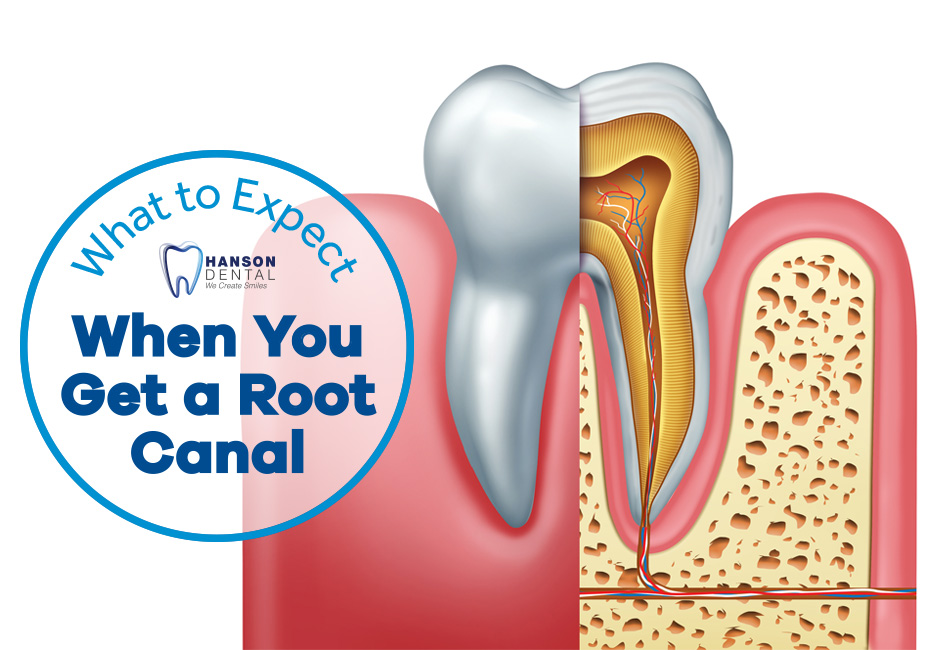When you have throbbing tooth pain or any of the other obvious signs of infection, the first thing Dr. Hanson or Dr. Osmundson needs to do is locate the source of the problem with dental X-rays. It’s also necessary to complete a thorough oral exam to ensure that another issue is not causing your symptoms. Depending on the severity of your symptoms, one of our Hanson Dental dentists may perform a root canal. The most common symptoms that typically lead to a root canal include:
· Severe pain in one tooth that may prevent you from sleeping
· A significantly worn tooth
· Pain that radiates from a tooth to the jaw, temples, or ears
· A tooth that appears darker than those surrounding it
· Pain when touching the tooth or when biting down into food
· Cold and/or heat sensitivity that remains even after you take the source of the cold or heat away
· Swelling
· A discharge of pus
The Root Canal Procedure
To start the root canal, a dental assistant places a rubber-like sheet called a dental dam in your mouth to keep it clean and free from saliva. The next step is for Dr. Hanson or Dr. Osmundson to drill a small opening in the crown of your tooth to access and remove the infected pulp. Your dentist then cleans your entire tooth from the inside before placing a dental crown on top of it. This helps to strengthen your tooth and guard against further infection.
Avoiding a root canal can lead to significant complications. The most common one is an abscessed tooth. This is an extremely painful condition that can eventually cause you to lose bone in your jaw bone. The infection in your tooth can also spread to nearby teeth, causing unnecessary decay and the possibility that they, too, will require treatment. The minor discomfort of a root canal is well worth it when you consider what could happen if you ignore the problem. At Hanson Dental, we do everything possible to keep you comfortable during a root canal procedure and immediate after it.
Contact Us for Emergency Service or Schedule a Consultation
If you’re experiencing moderate to severe pain due to a possible infection, we urge you to contact us immediately at 763-682-9796. For subtle symptoms, please schedule an oral evaluation as soon as possible. Our dental team will provide you with prompt answers to the question of what is causing your pain, whether you need a root canal or another restorative dentistry procedure.
Image credit: wildpixel / iStock / Getty Images Plus

